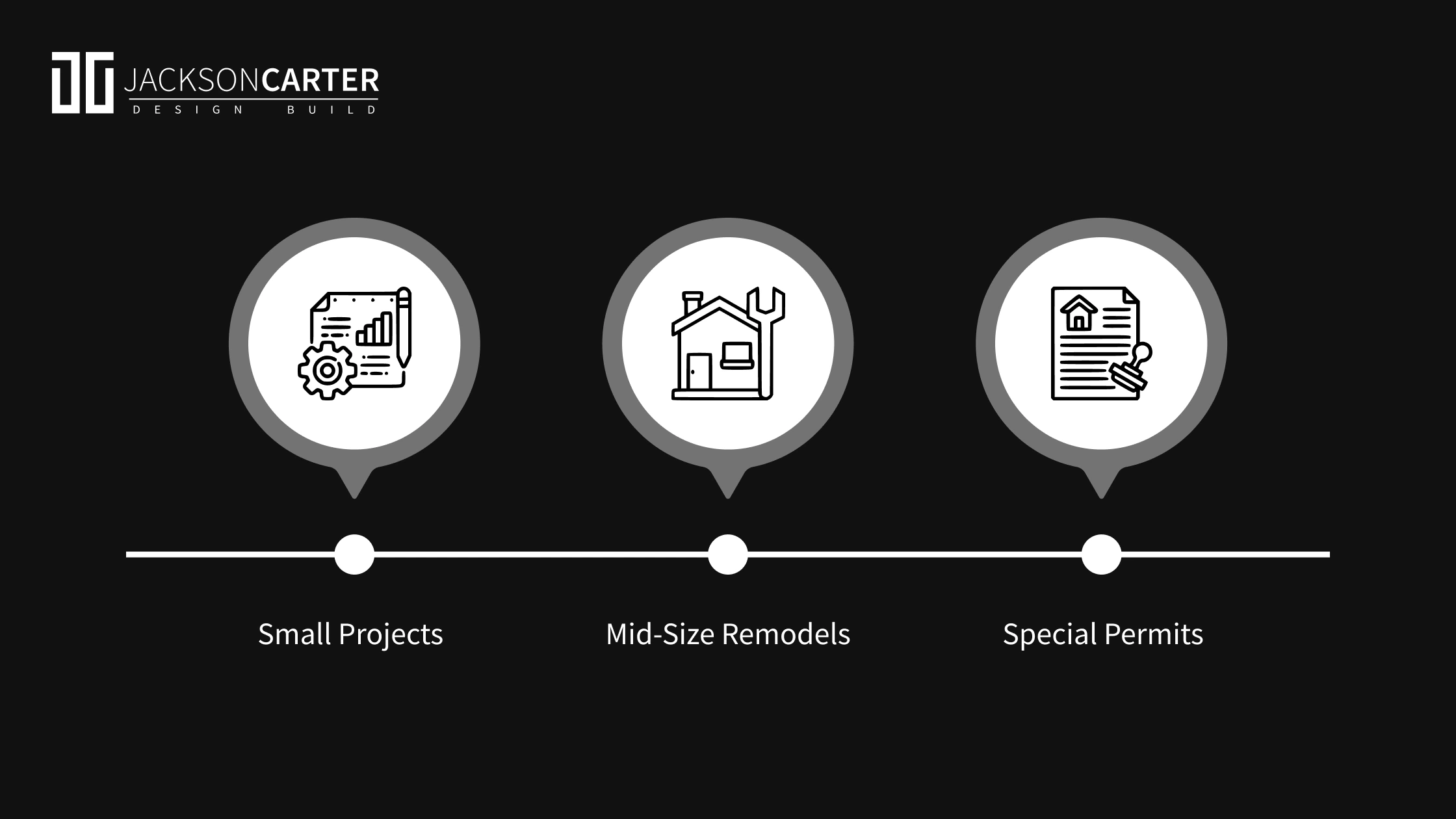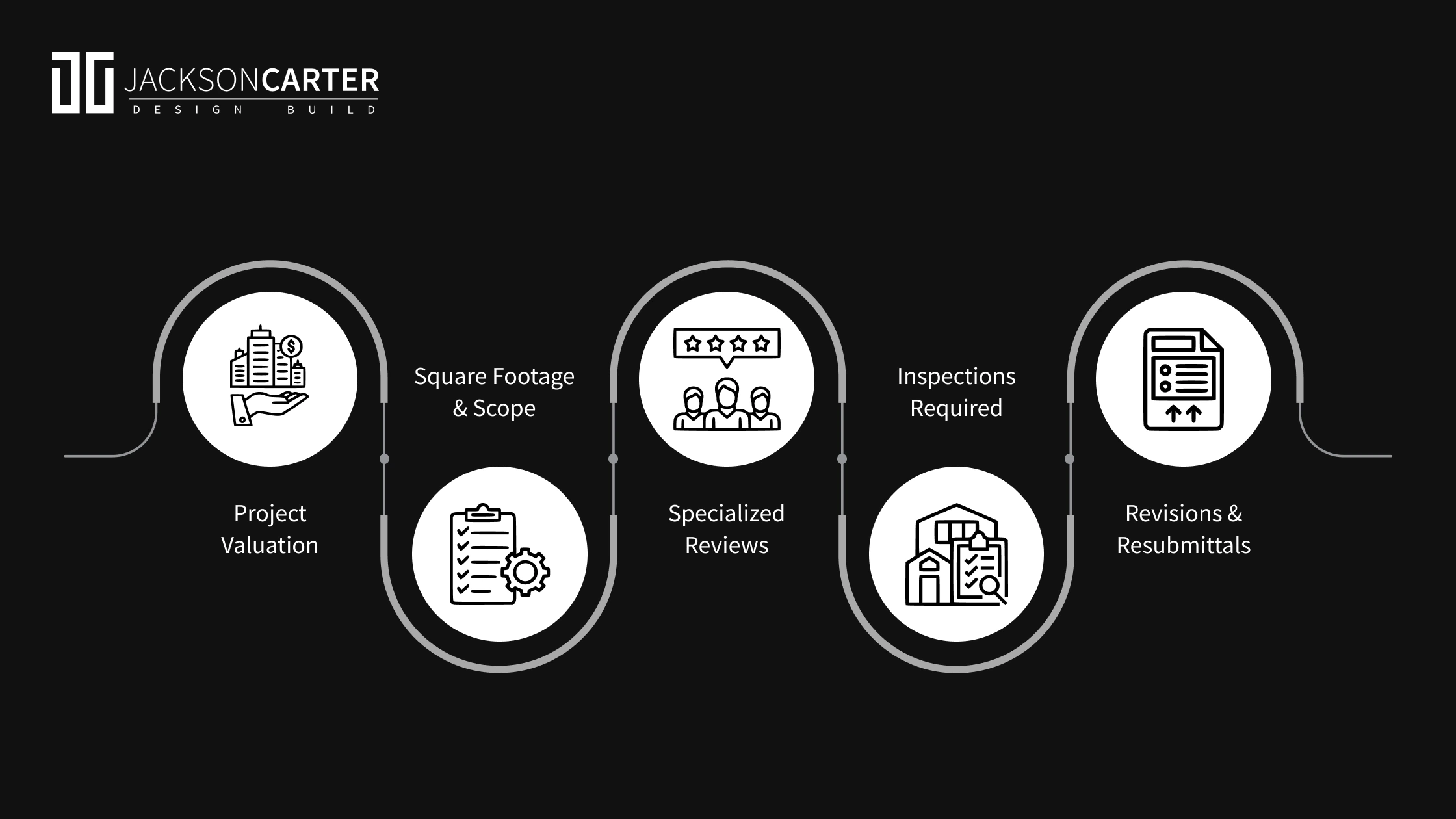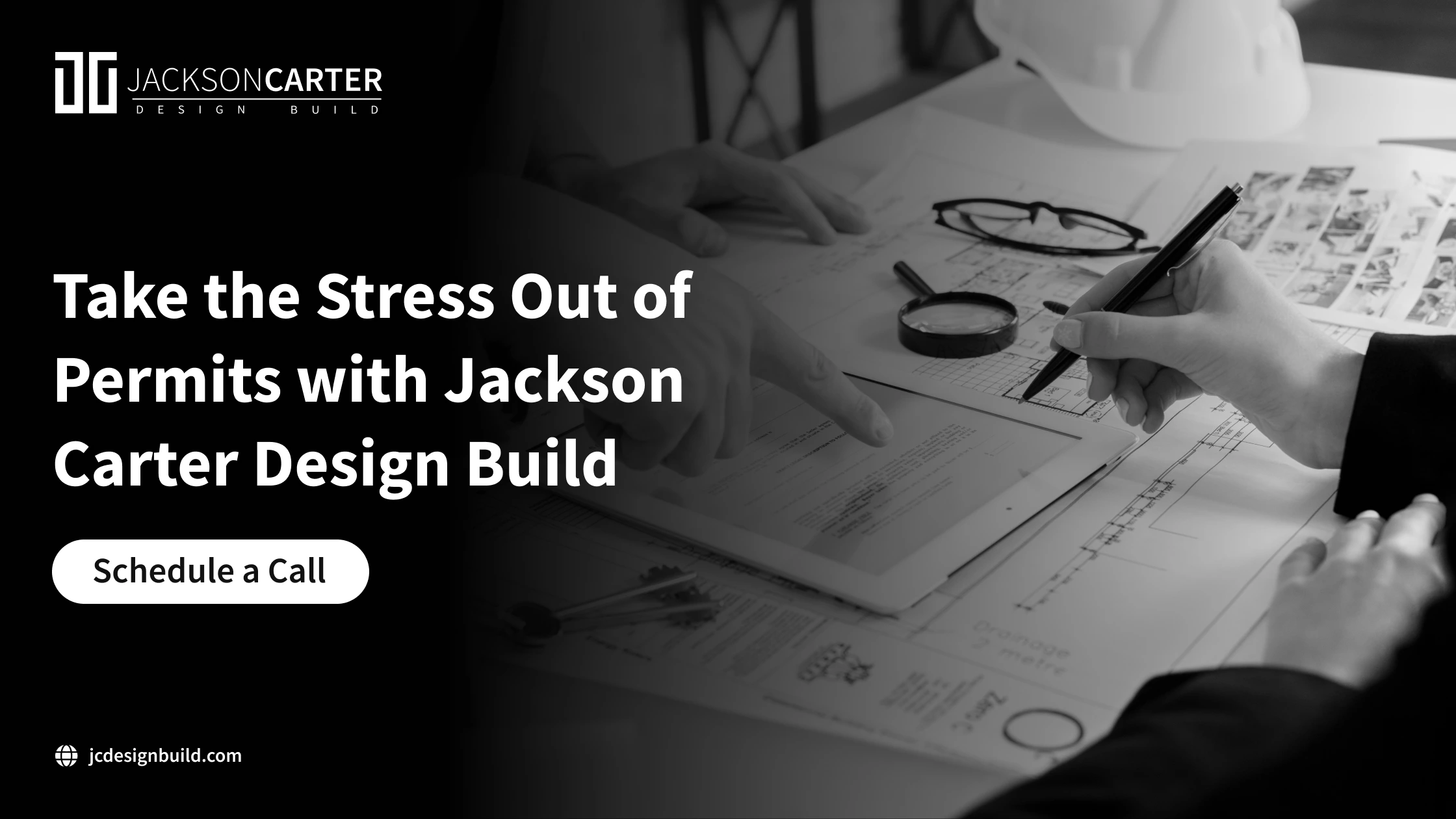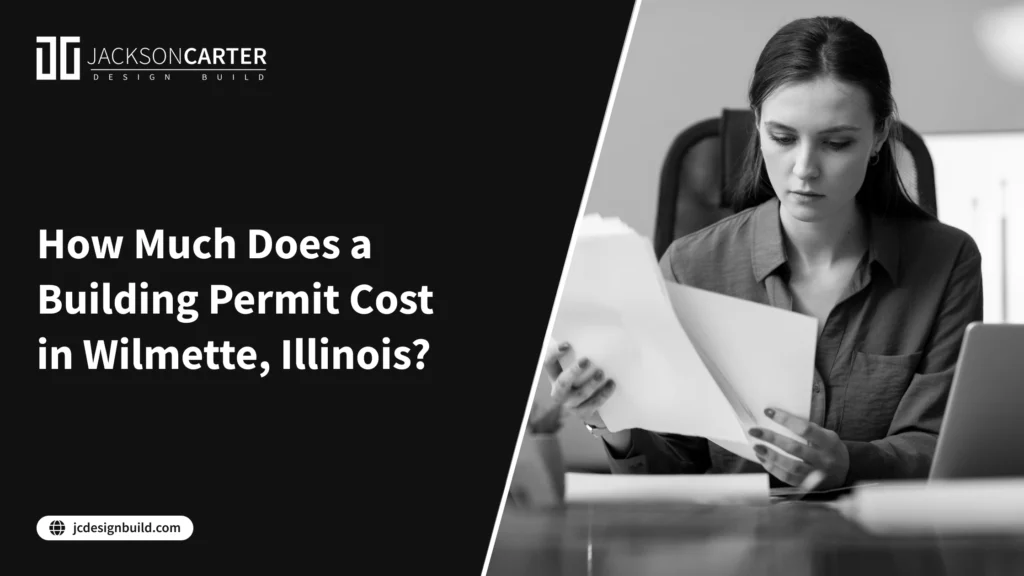Homeowners in Wilmette often start their remodel or addition with excitement, only to get slowed down by paperwork, timelines, and fees. Permit fees are, in fact, one of those tricky things to pin down since they change depending on size, type of project, and reviews required. Not what you need as construction costs rise.
Building permits in the US have recently shown a decrease of 2.2% in June 2025 to reach their lowest level since 2020, as many households delayed projects because of cost pressure. This dip highlights the financial strain families face when even small expenses, like permit fees, start to add up.
Understanding how Wilmette structures its permit fees helps you plan ahead, avoid surprises, and keep your remodeling budget under control. Let’s break down the actual numbers so you know what to expect before submitting your application.
Base Fee Structure in Wilmette
Wilmette calculates its building permit fees using a valuation-based formula plus flat inspection fees. That means the bigger or more complex the project, the higher the permit cost. Knowing the base cost helps you budget accurately from the start.
- Wilmette charges $20.16 per $1,000 of construction valuation as the base permit fee. That covers general building permit review.
- The village adds a $39 inspection fee on top of the base valuation-based permit fee. Every time you schedule an inspection, you pay that flat fee.
Other basic permit types use lower flat fees, which help when the construction value is low or the work is limited:
- Roof, fence, or pool permits use the same valuation formula
- Smaller or simpler permits (like a fence or roof) sometimes cost just $39 flat when the valuation or scope is minimal.
Wilmette also defines thresholds for requiring stamped or sealed plans. When your remodel value exceeds $25,000 or involves certain structural or site-work complexity (like new window openings, basement remodels, etc.), the village requires sealed drawings by a registered architect or structural engineer.
Common Permit Fees for Typical Projects

Wilmette bases its permit costs on the type and scope of your project. You have to pay simple flat fees for some projects, while attribution-based fees, deposits, and multiple inspections for some. Knowing these categories will not have you caught off guard when budgeting for your remodel or new build.
Small Projects
Not every home project in Winnetka comes with a hefty permit bill. Most small-scale updates typically fall under a simple flat fee structure. This makes it easier for homeowners to plan, since costs don’t depend on the total construction value.
Roof replacements, siding repairs, or building a standard fence are among the most common “small project” permits. The Village of Wilmette charges a flat inspection fee for many of these, which serves as the minimum permit fee. That means if you’re patching up your roof, replacing windows without altering the structure, or updating siding, you’ll likely only see this base charge.
Typical small projects include:
- Roof replacement or repair
- Fence installation or replacement
- Siding updates
- Window or door swaps (non-structural)
- HVAC equipment replacement (like furnace or A/C)
- Minor interior remodeling without structural changes
Flat fees keep upfront costs predictable and speed up the review process. The village doesn’t need to calculate valuations or review large structural changes, so turnaround tends to be quicker compared to more complex projects. For homeowners, this category offers a relatively low-cost, low-stress way to handle permits for essential upkeep.
Mid-Size Remodels
When a project moves beyond simple updates and touches the structure or footprint of your home, the Village of Wilmette calculates fees differently. Instead of a flat charge, costs depend on the project’s overall construction valuation. This approach ties permit fees more closely to the scope and scale of the work, which makes sense given the additional review, safety checks, and inspections involved.
Homeowners can expect to pay:
- A base fee tied to valuation
- A deposit that ensures inspection compliance, refunded once all approvals are complete.
- Multiple inspection fees, since mid-size remodels often require electrical, plumbing, or structural checks throughout the build.
Typical mid-size projects include:
- Kitchen remodels or bathroom remodels involving plumbing or structural work
- Building a detached garage or carport
- Moderate home additions (e.g., bump-outs or new rooms under 500 sq. ft.)
- Basement finishing with new walls, egress windows, or mechanical systems
These projects take longer to review since the village needs detailed drawings, contractor information, and structural calculations. The fee structure accounts for that added complexity, making it important for homeowners to budget not just for construction but also for permitting and inspections along the way.
Special Permits
Some projects require more than a standard building review because they impact public safety, utilities, or land use. In Wilmette, these fall into the category of special permits, and the costs vary depending on scope.
Examples include:
- Swimming pools and spas: Fees account for safety barriers, electrical inspections, and proper drainage.
- Grading and excavation: Extra reviews ensure proper water runoff, erosion control, and compliance with stormwater management requirements.
- Right-of-way work: Any construction that touches sidewalks, driveways, or utilities within public property requires both a permit and a restoration fee to cover municipal oversight.
These permits often involve multiple departments, such as zoning, engineering, and public works. That means homeowners may face layered costs: the permit itself, additional deposits, and inspection fees tied to specialized reviews.
Knowing these factors early can prevent delays and surprise expenses later. Homeowners who plan outdoor amenities or site changes should be told that this will take a longer approval timeline because of the additional coordination between agencies.
Permit Validity, Extensions, and Penalties
Even after a building permit is issued, homeowners need to track its timeline and conditions. Wilmette’s building department sets clear rules on how long permits remain active, what happens if projects stall, and the financial consequences of moving ahead without approval.
Most building permits in Wilmette remain valid for 12 months from the date of issuance. If work does not begin or stalls for an extended period, the permit may expire. Homeowners can request an extension, though this usually requires a formal application and an additional fee. Extensions are reviewed on a case-by-case basis, often tied to project progress or delays outside the homeowner’s control.
Starting construction without a required permit triggers penalty fees in Wilmette. These penalties often include double the standard permit cost or added fines, depending on the scope of unpermitted work. Beyond financial consequences, unpermitted projects can create resale issues, insurance complications, and in some cases, mandatory removal or redo of work.
Homeowners save time and money by securing the correct permit upfront rather than paying steep penalties later.
What Influences Your Permit Cost Most?

Permit fees in Wilmette are not one-size-fits-all. Several variables determine how much you’ll pay, and understanding them helps avoid surprises during planning. The biggest cost drivers usually include:
- Project Valuation: Fees are often tied to the declared construction value. A larger or more complex remodel results in higher fees because the permit cost scales with the investment.
- Square Footage & Scope: Expansions, new structures, or significant remodels that alter plumbing, electrical, or structural elements demand more oversight, leading to higher permit charges.
- Specialized Reviews: Certain projects, like those in floodplains or near easements, require additional engineering or zoning review, which can add fees.
- Inspections Required: Each inspection carries a cost, and bigger projects usually require multiple inspections at different stages.
- Revisions & Resubmittals: If plans need significant changes after submission, you may incur resubmittal fees.
With these in mind, homeowners can have a better, more accurate estimate and prepare the budget for the obvious and hidden costs of permits in Wilmette.
Tips to Reduce or Avoid Unexpected Costs
Plan properly to avoid being surprised when making payments for permits in Wilmette. Start by submitting an accurate estimate of your project costs together with complete documentation. Missing details or incomplete plans often lead to revisions, extra review fees, or delays, which add up quickly.
Working with experienced local contractors or design-build teams helps keep costs predictable. Professionals, like Jackson Carter Design Build, who know Wilmette’s fee charts and permit steps can lead you through the right paperwork, spot possible extra charges ahead of time, and speed up submissions. Their know-how cuts down on pricey mistakes.
Submitting your plans early and ensuring compliance with local codes minimizes rush charges or penalties. Following these steps ensures smoother approvals and avoids unnecessary expenses, letting your remodel proceed efficiently and within budget.
What You Should Budget For
When planning a Wilmette remodel, factoring in permit costs early helps prevent surprises and keeps your project on track. Typical costs can include base fees, inspection fees, special permits, and any potential extension or penalty charges. Allocating a buffer of 10–20% for unexpected permit-related expenses is a practical approach.
Partnering with an experienced design-build firm like Jackson Carter Design Build can streamline the process and save both time and money. Their expertise ensures accurate and compliant submissions, reducing delays and additional fees.
Take the Stress Out of Permits with Jackson Carter Design Build
 Permit fees and requirements in Wilmette can be daunting. But a smooth transition from planning to construction for homeowners by Jackson Carter Design Build makes sure that every step complies with regulations. The team handles documentation, submission, and inspections, keeping you informed and confident.
Permit fees and requirements in Wilmette can be daunting. But a smooth transition from planning to construction for homeowners by Jackson Carter Design Build makes sure that every step complies with regulations. The team handles documentation, submission, and inspections, keeping you informed and confident.
How JCDB Supports You:
- Guides project compliance expertly
- Shares timelines, and milestones
- In-house design-build expertise makes execution seamless
- Keeps you updated with timelines and milestones
- Offers in-house design-build expertise for seamless execution
Start your remodel with clarity and confidence. Our team is here to make the process effortless.
Book Your 15-Minute Discovery Call Today!
FAQs
- Do permit fees vary by neighborhood in Wilmette?
Yes, some local districts may have specific surcharges or requirements. - Are online applications accepted for all permit types?
Wilmette allows certain permit submissions online, but complex projects may require in-person filing. - Can I transfer a permit if I sell my property mid-project?
Some permits are transferable. Check with the village for specific conditions. - Do contractors usually include permit costs in their quotes?
Experienced contractors often factor in permit fees, but always confirm upfront.
Are inspections included in the initial permit fee?
Basic inspections are generally included, but additional or re-inspections may incur extra charges.

